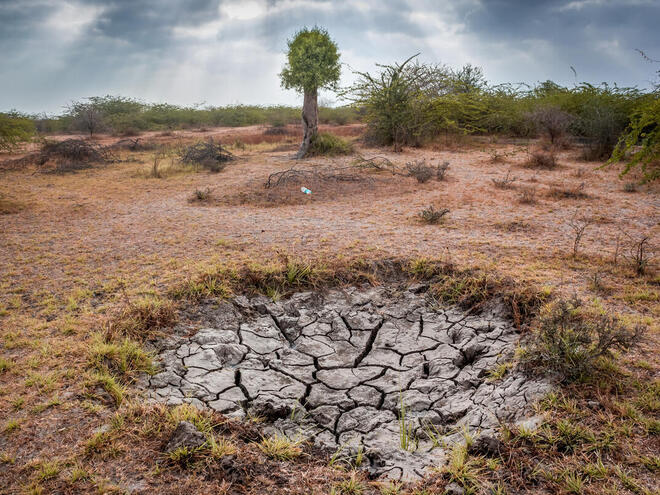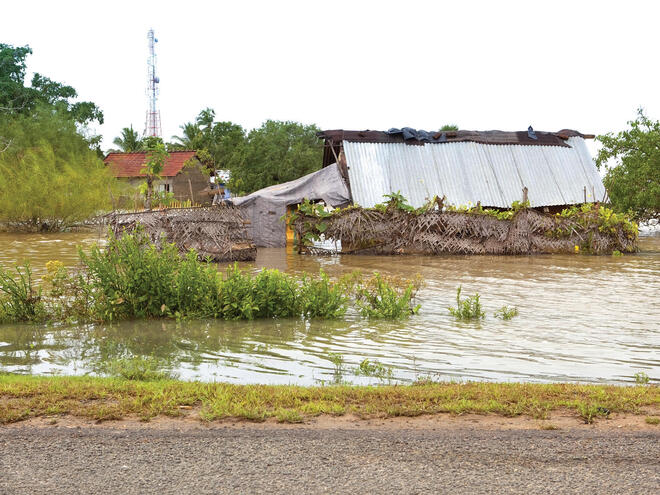The American Chestnut
Insect Ecology Series
Every species is connected in an ecosystem. They each directly or indirectly impact the success or decline of other species in that system, creating a self-correcting balance of organisms.
However, an outside influence can create an imbalance that can tip the scales and create a cascading effect throughout the system.
That’s the story many researchers are still trying to untangle about the decline of the American chestnut tree (Castanea dentata).
Before the start of the 20th century, the American chestnut was the dominant overstory tree in forests of the eastern United States. Then, with the accidental introduction of a fungus that causes chestnut blight, the forest composition changed completely in just 50 years.
American chestnut trees were either killed by the blight or harvested by those trying to salvage what lumber they could before the blight took over. This impacted wildlife that depended on the chestnuts for food at certain times of the year.
But what about insects? What species were abundant on chestnut trees that might forever remain unrecorded, unobserved, or undescribed?
That’s the question researchers at Hofstra University sought to answer in a new study published this month in Environmental Entomology.
Karissa Hough, an undergraduate student in biology at Hofstra University, worked with the Greentree Foundation on Long Island, New York, to search for leafminers and stem miners on American chestnut trees.
“I was fortunate enough to get an internship with Greentree Foundation as an undergraduate,” Hough says. “There was an opportunity to survey for leafminers that feed on American chestnut. At that time, I didn’t even know what leafminers were!”
Leaf and stem miners are a broad group of insects that feed as larvae just under the surface of plant leaves and stems, often leaving a visible scar along their tunnel path in the plant tissue. Among them are species of moths, flies, beetles, and sawflies.
Hough worked with additional researchers at Hofstra University, the Greentree Foundation, the State University of New York at Old Westbury, and the Smithsonian National Museum of Natural History to survey for leaf and stem miners on American chestnuts and other non-native chestnut species. The Greentree Foundation owns a property on Long Island, New York, with a remnant patch of American chestnuts and several species of non-native chestnut trees.

 World leaders must make a dramatic course correction in ambition and action to fight the human-caused climate crisis.
World leaders must make a dramatic course correction in ambition and action to fight the human-caused climate crisis. The United Nations’ 28th annual climate summit in Dubai is being held at a critical time, coming a year of record-breaking temperatures and extreme weather events around the world
The United Nations’ 28th annual climate summit in Dubai is being held at a critical time, coming a year of record-breaking temperatures and extreme weather events around the world WWF's Oceans Futures platform uses global climate and fisheries models to flag global regions that will likely see greater conflict, food insecurity, or geo-political tensions over ocean resources.
WWF's Oceans Futures platform uses global climate and fisheries models to flag global regions that will likely see greater conflict, food insecurity, or geo-political tensions over ocean resources. Carbon is essential to life on Earth. As the atmosphere has evolved, the amount of carbon in it has increased due to human activity, mostly from burning fossil fuels, resulting in the climate crisis.
Carbon is essential to life on Earth. As the atmosphere has evolved, the amount of carbon in it has increased due to human activity, mostly from burning fossil fuels, resulting in the climate crisis. Putting nature at the heart of infrastructure design offers a great way to help halt and reverse biodiversity loss and reduce greenhouse gas emissions.
Putting nature at the heart of infrastructure design offers a great way to help halt and reverse biodiversity loss and reduce greenhouse gas emissions. Activists play a significant role in encouraging governments to effectively tackle the plastic pollution crisis. Among them is Betty Osei Bonsu, who is mobilizing youth to fight for a solution.
Activists play a significant role in encouraging governments to effectively tackle the plastic pollution crisis. Among them is Betty Osei Bonsu, who is mobilizing youth to fight for a solution. Oysters, in all their stunning variety and storied reputation for pearls and elegant cuisine, play an exemplary–if often unacknowledged–role in mitigating the effects of our warming planet.
Oysters, in all their stunning variety and storied reputation for pearls and elegant cuisine, play an exemplary–if often unacknowledged–role in mitigating the effects of our warming planet. WWF's Daniel Vernick reflects on pride, nature, and the climate crisis in commemoration of LGBTQ+ Pride Month.
WWF's Daniel Vernick reflects on pride, nature, and the climate crisis in commemoration of LGBTQ+ Pride Month.
 A new report by an international body of scientists shows the increasingly severe climate impacts people and nature face. WWF added plants and animals to highlight how climate change affects all life.
A new report by an international body of scientists shows the increasingly severe climate impacts people and nature face. WWF added plants and animals to highlight how climate change affects all life. Here's how nature can help reduce stress
Here's how nature can help reduce stress This meeting will be the first time negotiators start mapping out the basis for the treaty’s framework before the first draft is started later this year.
This meeting will be the first time negotiators start mapping out the basis for the treaty’s framework before the first draft is started later this year. WWF is dedicating its annual science symposium to Tom Lovejoy.
WWF is dedicating its annual science symposium to Tom Lovejoy.